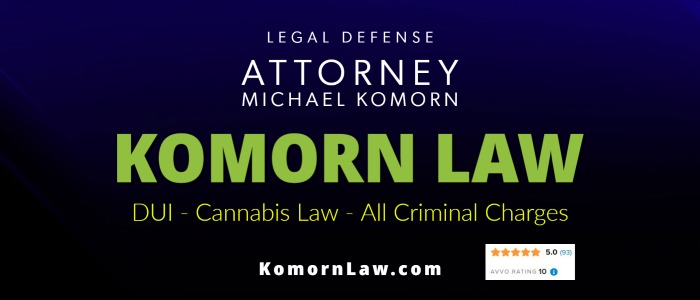RESTORE YOUR SECOND AMENDMENT RIGHTS
RESTORE YOUR PROFESSIONAL LICENSE
RESTORE YOUR DRIVER LICENSE
RESTORE YOUR PAST
Call our Office for a free case evaluation
Komorn Law (248) 357-2550
(tap here to call now)
Komorn Law practices in Both Federal and All Courts in the State of Michigan
The Petitions of the Week column highlights a selection of cert petitions recently filed in the Supreme Court. A list of all petitions we’re watching is available here.
Organized crime, from the mafia to small-time money laundering schemes, often evades criminal prosecution.
To bolster efforts to fight organized crime, Congress passed the Racketeer Influenced and Corrupt Organizations Act, known as RICO, more than 50 years ago.
In addition to the criminal penalties for violating RICO, the law also authorizes private individuals to bring civil lawsuits for an injury to their “business or property” as a result of the defendant’s “racketeering activity,” which the law defines broadly to include a wide range of criminal offenses.
This week, we highlight petitions that ask the court to consider, among other things, whether someone can sue under RICO to recover lost earnings.
Marketed as “a revolution in medicinal hemp-powered wellness,” Dixie X is a CBD supplement that claims to offer a variety of health benefits. After learning about Dixie X in a magazine, Douglas Horn began using the supplement in 2012 to soothe pain and inflammation from a car accident. Although the ad claimed that the supplement does not contain any THC (the active ingredient in marijuana), is derived from foreign hemp obtained under an “FDA import license,” and was produced after “meticulously review[ing] state and federal statutes,” as a commercial truck driver Horn was subject to random drug testing and did not want to risk losing his job. Before purchasing Dixie X, Horn therefore reviewed the product’s FAQ page and called a customer-service hotline to confirm that it was truly THC-free.
Satisfied, Horn began using Dixie X. Shortly after, he failed a random drug test at work and was fired. Suspecting the supplement, Horn sent a batch to an independent lab, which found that the product contained THC.
Horn went to federal court in New York, arguing that the company that sold Dixie X, Medical Marijuana, Inc. – which, despite its name, deals only in hemp-based CBD products – was responsible for his termination. Part of his lawsuit alleged violations of state law, including a claim that he was fraudulently induced to purchase the supplement while unaware of its risks. But Horn also argued that the company injured his “business or property” under RICO by conspiring to commit federal mail and wire fraud that resulted in the loss of his salary.
Read the rest here at ScotusBlog
More Posts
Taxes and School Policy in New State Budget
DUI - Traffic - Resisting - Any CrimeBetter Call KomornMore, More, More, More, More, More, More,...
Michigan lawmakers looking to revive “junk science” roadside drug testing
Michigan motorists could soon face roadside saliva drug tests, despite research indicating that...
No Sheet Sherlock
Better Call KomornAnything but air is badCannabis smoking poses fewer pulmonary risks than tobacco...
You likely won’t be told if your weed failed mold test.
You likely won't be told if your weed failed mold test.Michigan marijuana regulators are missing...
We Know What You Did – Last Time We Looked
Better Call KomornThe Kingpins always watch their business Will the budtenders and trimmers soon...
Auction-Style Marketplace for Bulk Buying and Selling Cannabis
Got a Tough Legal Defense Case?Better Call KomornNew Auction Marketplace for Bulk Buying and...















